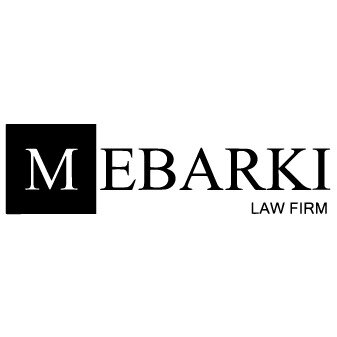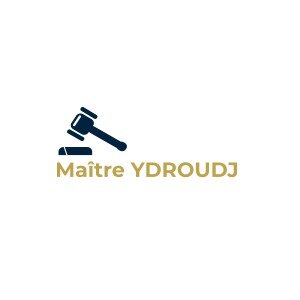Best Nonprofit & Charitable Organizations Lawyers in Algeria
Share your needs with us, get contacted by law firms.
Free. Takes 2 min.
Or refine your search by selecting a city:
List of the best lawyers in Algeria
About Nonprofit & Charitable Organizations Law in Algeria
Nonprofit and charitable organizations in Algeria are entities established to pursue goals that are not profit-oriented. They may focus on social, educational, cultural, or philanthropic objectives. The formation and operation of these organizations are governed by specific legal frameworks set by the Algerian government to ensure transparency, accountability, and public benefit. These organizations must register with relevant government authorities and comply with laws regarding their structure, operations, and reporting to maintain public trust and legal standing.
Why You May Need a Lawyer
Engaging the services of a lawyer specializing in nonprofit and charitable organizations can be crucial in several scenarios:
- Establishing a New Organization: Navigating the legal requirements for forming a nonprofit can be complex, and legal guidance can help ensure compliance.
- Drafting and Reviewing Bylaws: A lawyer can assist in drafting bylaws that align with legal standards and organization's goals.
- Compliance Issues: Legal assistance is often needed to ensure adherence to regulations, such as reporting requirements and financial audits.
- Employment Law Matters: Guidance on labor laws and employment contracts specific to the nonprofit sector.
- Intellectual Property: Protecting the organization's name, logo, and other intellectual assets.
- Dispute Resolution: Legal intervention in conflicts arising within the organization or with third parties.
Local Laws Overview
The legal framework for nonprofits in Algeria is outlined by several key pieces of legislation:
- Law No. 12-06 of 2012: This law governs the creation, management, and operation of associations. It outlines the requirements for registration, structure, and dissolution of nonprofit organizations.
- Registration Requirements: Nonprofits must register with the local authorities and acquire legal status to operate officially.
- Financial Transparency: Nonprofits are required to maintain transparent financial records and may be subject to audits to ensure funds are utilized appropriately.
- Reporting Obligations: Regular reports detailing activities and financial status must be submitted to the relevant government bodies.
Frequently Asked Questions
What is the process for registering a nonprofit in Algeria?
To register a nonprofit in Algeria, you must submit an application to the local authorities, including your proposed bylaws, organizational structure, and objectives. Registration is complete once approval is granted, and a registration number is issued.
Are there specific tax benefits for nonprofits in Algeria?
Yes, registered nonprofits may qualify for certain tax exemptions and incentives, subject to compliance with legal requirements.
Can foreign entities establish nonprofit organizations in Algeria?
Yes, foreign entities can establish nonprofits, but they must adhere to the same legal requirements as domestic organizations, potentially with additional oversight.
What governance structures are required for Algerian nonprofits?
Nonprofits typically require a board of directors responsible for overseeing governance and strategic direction, along with clearly defined roles and responsibilities outlined in their bylaws.
How can a nonprofit protect its intellectual property?
Organizations should register trademarks and copyrights with the relevant authorities to secure legal protection for their intellectual property.
What are the key reporting requirements for nonprofits?
Nonprofits must submit annual financial reports and activity summaries to the regulating governmental bodies to ensure transparency and accountability.
Can nonprofits engage in commercial activities?
Nonprofits may engage in certain commercial activities, provided the proceeds are used to support their non-profit objectives.
How are disputes handled within nonprofit organizations?
Disputes can often be resolved through mediation or arbitration. Legal counsel can provide guidance on the best dispute resolution approach tailored to the situation.
What are the penalties for non-compliance with nonprofit laws?
Penalties for non-compliance can include fines, deregistration, or legal action against the organization's officers. It's vital to maintain compliance to avoid these risks.
Can the government audit nonprofit organizations?
Yes, nonprofit organizations in Algeria may be subject to audits to ensure funds are managed correctly and according to the stipulated guidelines.
Additional Resources
For more information and assistance with nonprofit and charitable organizations, you can contact the following organizations:
- Ministry of Interior and Local Governments: Responsible for overseeing the registration and regulation of associations and nonprofits.
- National Center for the Development of Nonprofit Organizations: Provides support and resources for nonprofit establishments.
- Local Chambers of Commerce: Offer guidance for foreign entities interested in establishing a nonprofit in Algeria.
Next Steps
If you require legal assistance with nonprofit and charitable organizations in Algeria, consider the following steps:
- Research and Contact a Qualified Lawyer: Look for a legal professional who specializes in Algerian nonprofit law.
- Prepare Your Documents: Gather all necessary documents including bylaws, mission statements, and previous financial reports.
- Schedule a Consultation: Discuss your needs and concerns with your lawyer to determine the best course of action.
- Ensure Compliance: Work with your lawyer to understand and comply with all legal and regulatory obligations.
Lawzana helps you find the best lawyers and law firms in Algeria through a curated and pre-screened list of qualified legal professionals. Our platform offers rankings and detailed profiles of attorneys and law firms, allowing you to compare based on practice areas, including Nonprofit & Charitable Organizations, experience, and client feedback.
Each profile includes a description of the firm's areas of practice, client reviews, team members and partners, year of establishment, spoken languages, office locations, contact information, social media presence, and any published articles or resources. Most firms on our platform speak English and are experienced in both local and international legal matters.
Get a quote from top-rated law firms in Algeria — quickly, securely, and without unnecessary hassle.
Disclaimer:
The information provided on this page is for general informational purposes only and does not constitute legal advice. While we strive to ensure the accuracy and relevance of the content, legal information may change over time, and interpretations of the law can vary. You should always consult with a qualified legal professional for advice specific to your situation.
We disclaim all liability for actions taken or not taken based on the content of this page. If you believe any information is incorrect or outdated, please contact us, and we will review and update it where appropriate.
Browse nonprofit & charitable organizations law firms by city in Algeria
Refine your search by selecting a city.












